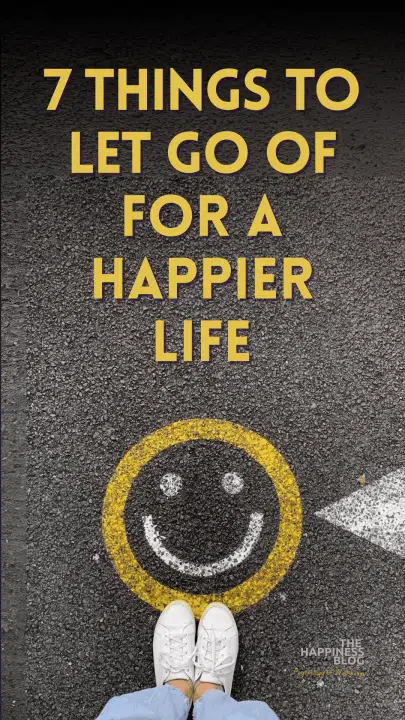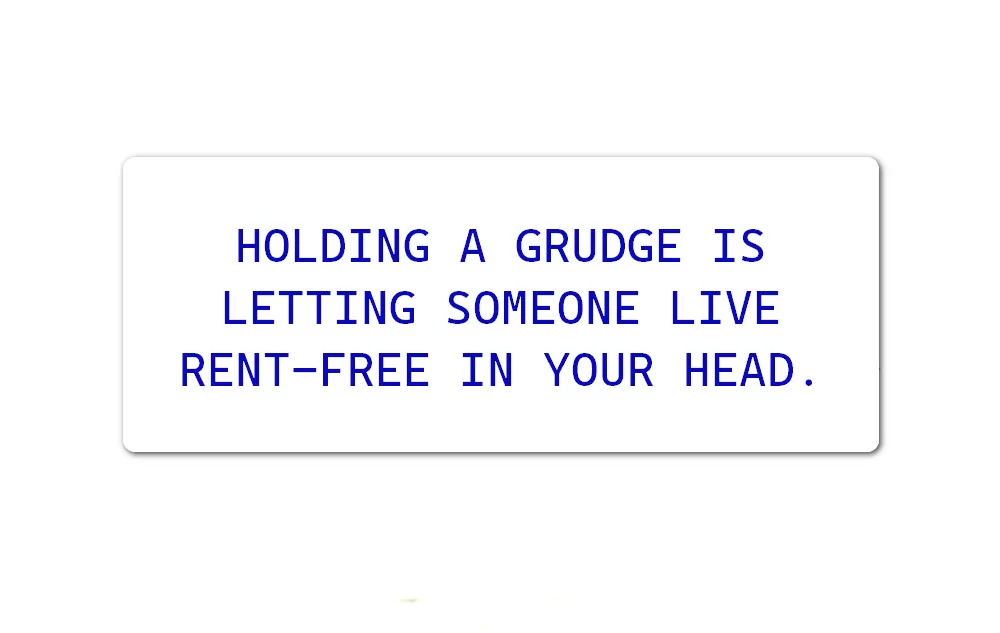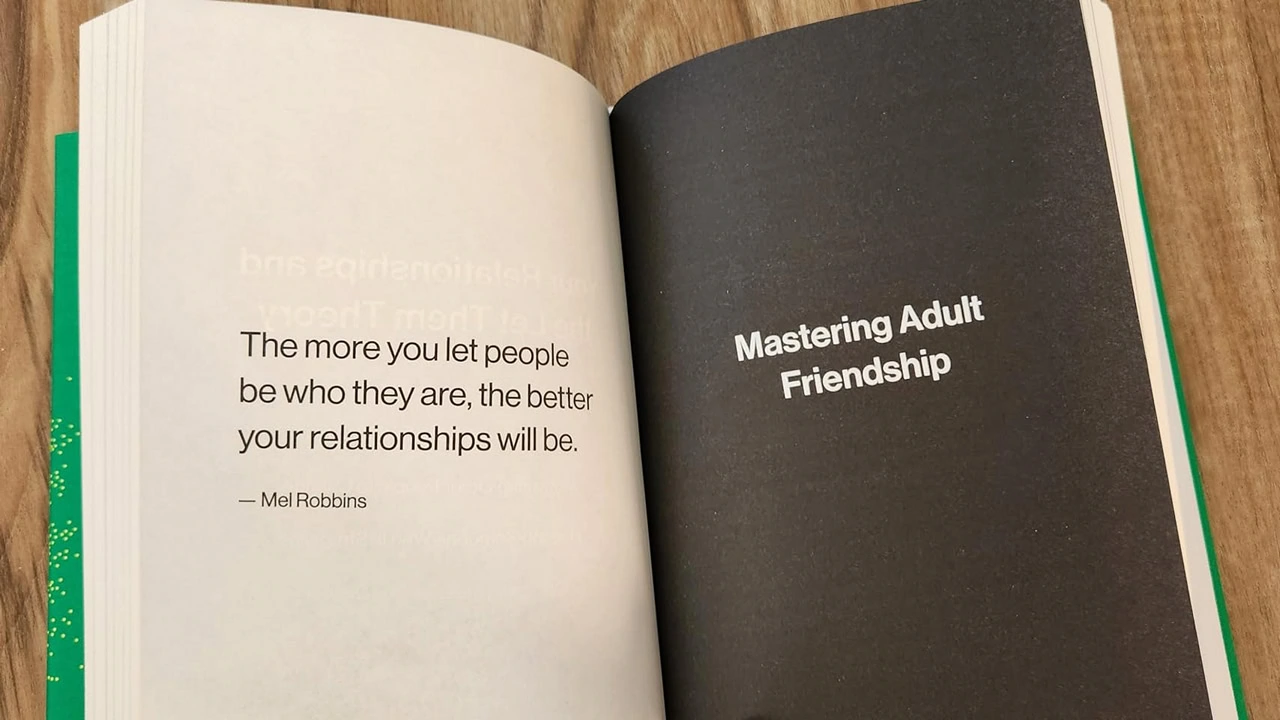Today's Monday • 9 mins read
— By Dr. Sandip Roy.
I’ve been studying the Science of Happiness for over a decade, and I can reliably tell you that chasing and owning stuff rarely brings lasting happiness.
Society pushes us to add things for our comfort. But inner peace comes from letting go of the stuff we can do without, things that drain our peace.
Letting go is a process of reducing our attachment to results, wants, and expectations. When we let go, we reduce our stress and increase our psychological flexibility to life’s uncertainties.
- Letting go is built on the idea of nonattachment, a key principle in Daoist and Buddhist teachings. It tells us to release our grip on both good and bad experiences and accept things as they are.
- Bhambhani and Cabral’s (2016) research found that non-attachment (and mindfulness) is related to lower psychological distress and better mental health.
Ready for more peace and happiness in life? Here are seven things to let go of:
1. Perfectionism
Perfectionism masquerades as high standards, but actually functions as a happiness thief.
When we demand flawless performance in everything, we create an impossible standard that generates stress rather than satisfaction.
- Studies link perfectionism to higher levels of anxiety, social anxiety, and obsessive-compulsive behaviors (Burgess & DiBartolo, 2016).
- Perfectionists are often perpetually dissatisfied. They focus on fixing the smallest mistakes, rather than allowing themselves to enjoy their achievements.
The happiness-oriented alternative? Accept “good enough” as the standard for most tasks. Progress is better than perfection.
Try this: Identify one area this week when you’ll deliberately aim for 80% rather than 100%. Notice how this shift affects your stress levels and enjoyment of the process.

2. Social Comparison
Comparing our lives is easier in today’s hyper-connected world. Earlier, we kept an eye on the good fortune of our neighbors. Now, we can compare our dull lives to the blissful lives of the Japanese.
Of course, the curated highlights of your social media feed make you unhappy. But social comparison has another issue, and it’s not what you might think.
Lyubomirsky & Ross’s study, “Hedonic consequences of social comparison,” found a fascinating pattern:
- Happy people don’t compare themselves much to others. They prefer to evaluate themselves against their own benchmarks, especially when outperformed by a peer.
- Happy people especially avoid comparing themselves with people who are better off. They are also very resistant to the negative effects of unfavorable comparisons.
- Unhappy people, in contrast, tend to compare their lives with those who are better off. This often makes them feel worse, intensifies their feelings of inadequacy, and further reduces their happiness.
This insight, often attributed to Theodore Roosevelt, perfectly captures what positive psychology research confirms: “Don’t compare your life to others; comparison is the thief of joy.”
- So, do not compare yourself to more successful or fortunate peers. Instead, measure yourself against your internal standards.
- If you compare your life to those less fortunate than you, remember to count your blessings and feel gratitude for the good things and good people in your life.
- When you see happy pictures of your social media friends, remember that they also have some unshared life frustrations.
The antidote? Replace comparison with appreciation. Stop obsessing over other people’s journeys. Recognize your unique strengths.
- To know more, read this: How To Stop Comparing Yourself To Others?
3. Grudges
Grudges are long-lasting feelings of anger or hostility from being hurt or insulted in the past. We hold a grudge for two main reasons: revenge or payback.
But holding grudges creates a paradox: we think we’re punishing others, but we’re primarily hurting ourselves.
When we carry grudges, we essentially give rent-free space in our minds to people who have harmed us.

Forgiveness studies show that letting go of resentment correlates with lower blood pressure, reduced anxiety, and improved sleep quality.
This doesn’t mean excusing harmful behavior or maintaining unsafe relationships. Rather, it means releasing the emotional burden of past hurts so they stop influencing your present happiness.
Make peace with your past so it won’t disturb your future. People who practice forgiveness experience greater life satisfaction.
Time heals almost everything. Give it time.
The emotional intensity of painful memories naturally diminishes when we stop refreshing them with resentment.
4. Trying To Control Others
We feel safe when things around us are predictable. So we try to control others, external situations, and outcomes in ways we can predict.
Trying to have control over every aspect of your life offers nothing more than a false sense of safety.
It can cause chronic anxiety about whether things will go as planned, frustration when the unexpected occurs, and a tendency to avoid risks altogether.
Life is fundamentally unpredictable, and therein lies its beauty. Happiness lies in living it by embracing its incalculability.
The best person in charge of your happiness is you. When you try to control others, you’re giving away that control to things outside yourself.
We can’t control external events, but we can control our responses. The Stoics know this; they call it the Dichotomy of Control: The Colossal First Pillar of Stoicism.
“The problem is the power you give to other people. Two simple words—Let Them—will set you free. Free from the opinions, drama, and judgments of others. Free from the exhausting cycle of trying to manage everything and everyone around you.” – Mel Robbins

Letting go of your desire to control others doesn’t mean becoming passive; rather, it means
- acting on what you can control,
- accepting what you cannot, and
- choosing serenity over anxiety.
Nonattachment (letting go) means actively letting your happiness be under your own control, free of external influences. It’s not to be confused with detachment, which is a passive stance of uncaring indifference.
5. Opinions of Others
What other people think of you is none of your business.
Relying on what others say or think of us ties our value to external validation. That can lead to emotional volatility, lower life satisfaction, and higher risk of anxiety and depression.
Preoccupation with the opinions of others creates “contingent self-worth,” which can negatively affect relationships, autonomy, self-regulation, and overall mental and physical health (Crocker & Knight, 2005).
Contingent self-worth = a fragile sense of self-esteem that is dependent (“contingent”) on external factors, such as achievements, social validation, or physical appearance.
The alternative is developing an “internal locus of evaluation.” It’s the ability to judge yourself based on personal values and standards, not on external opinions.
With a strong self-worth, you:
- can handle both negative and positive feedback easily,
- can stay unaffected by pointless praise or criticism that people may give you,
- do not need to look at others to validate your worth, or cut down on others to feel more worthy.
It also keeps your happiness stable, since you realize that what people say or think about you reflects their perspectives and limitations, nothing more.
To stop giving so much weight to other people’s opinions, practice self-reflection, build self-confidence, set clear boundaries, set your standards, and try these self-affirmations:
- “I am enough as I am, and my worth is defined by me.”
- “I trust my own judgment and value my unique perspective.”
- “I choose to focus on my inner voice rather than external approval.”
6. Overthinking
Our minds are powerful tools, but when thinking becomes excessive, it transforms from problem-solving into problem-creating.
Overthinking = replaying past negative situations endlessly or without reaching solutions.
How to find out if you’re thinking deeply or overthinking? Overthinking keeps you stuck in anxiety loops without solutions, while deep thinking moves you toward solutions.
Stop thinking so much. One, you can’t change the past. Two, it’s alright not to know all the answers.
Studies show overthinking (or rumination) strongly correlates with decreased well-being and increased symptoms of anxiety and depression.
The antidote isn’t mindlessness, but mindfulness. It is the practice of bringing gentle awareness to the present moment without judgment.
Try setting a specific “worry time” of 15 minutes daily, then postponing anxious thoughts until that designated window. Notice how this boundary helps prevent overthinking from infiltrating your entire day.
7. Excessive Seriousness
The internal voice that constantly points out your flaws doesn’t motivate improvement. It undermines happiness.
Kristin Neff’s research on self-compassion shows that treating yourself with the same kindness you’d offer a friend correlates strongly with psychological well-being.
Smile at the mirror. You don’t own all the problems in the world.
This simple reminder carries a profound psychological truth. When we take ourselves or our problems too seriously, we magnify their importance and drain our emotional resources.
Self-criticism activates stress responses that block happiness-supporting hormones. When we speak harshly to ourselves, we create an internal environment where joy struggles to survive.
The alternative isn’t delusional self-praise, but realistic self-compassion.
Self-compassion lets you acknowledge your imperfections while maintaining authenticity and self-respect.
This creates psychological safety that allows genuine happiness to flourish. Playfulness and humor serve as powerful antidotes to the excessive seriousness that can steal our joy.
Final Words
Finally, here’s another thing to let go of: Learned Helplessness.
Learned helplessness is when a person feels they cannot change a negative situation after being shown that their actions do not lead to desired results. So, they stop trying.
For example, a victim of a malignant narcissist may keep enduring abuse and stop trying to fend off the abuser after repeated failures to improve the situation.
The antidote, interestingly, is Dr. Seligman’s book Learned Optimism, which shares how flexible optimism can help you rise above pessimism and the depression that accompanies negative thoughts.
Finally, two facts on happiness from my decade-long studies:
- First, happiness is an action word. Research shows happiness depends more on your intentional actions than your circumstances.
- Second, happiness is an inside job. You will be a lot happier if you stop looking at others to make you happy, and instead take responsibility for making yourself happy.
So, take charge of your happiness.
• • •
√ Also Read: 8 Ways To Keep Your Cool Around A Narcissist
√ Please share it with someone if you found this helpful.